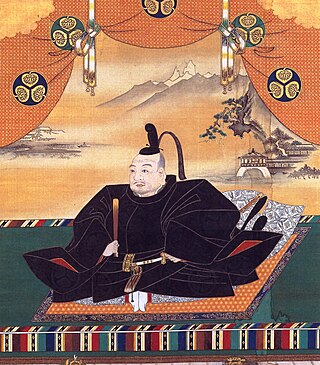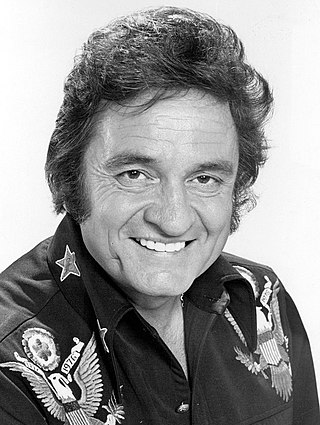This article has an unclear citation style .(February 2024) |
Dikgang Moseneke served in the Constitutional Court of South Africa from his appointment on 29 November 2002 until his retirement on 20 May 2016.
This article has an unclear citation style .(February 2024) |
Dikgang Moseneke served in the Constitutional Court of South Africa from his appointment on 29 November 2002 until his retirement on 20 May 2016.

Alexander III of Macedon, most commonly known as Alexander the Great, was a king of the ancient Greek kingdom of Macedon. He succeeded his father Philip II to the throne in 336 BC at the age of 20 and spent most of his ruling years conducting a lengthy military campaign throughout Western Asia, Central Asia, parts of South Asia, and Egypt. By the age of 30, he had created one of the largest empires in history, stretching from Greece to northwestern India. He was undefeated in battle and is widely considered to be one of history's greatest and most successful military commanders.

Gaius Julius Caesar Augustus, also known as Octavian, was the founder of the Roman Empire; he reigned as the first Roman emperor from 27 BC until his death in AD 14. The reign of Augustus initiated an imperial cult as well as an era associated with imperial peace, the Pax Romana or Pax Augusta, in which the Roman world was largely free of armed conflict aside from expansionary wars and the Year of the Four Emperors. The Principate system of imperial rule established by Augustus lasted until the Crisis of the Third Century.

Ludwig van Beethoven was a German composer and pianist. He is one of the most revered figures in the history of Western music; his works rank among the most performed of the classical music repertoire and span the transition from the Classical period to the Romantic era in classical music. Beethoven's career has conventionally been divided into early, middle, and late periods. His early period, during which he forged his craft, is typically considered to have lasted until 1802. From 1802 to around 1812, his middle period showed an individual development from the styles of Joseph Haydn and Wolfgang Amadeus Mozart, and is sometimes characterized as heroic. During this time, he began to grow increasingly deaf. In his late period, from 1812 to 1827, he extended his innovations in musical form and expression.

Leonardo di ser Piero da Vinci was an Italian polymath of the High Renaissance who was active as a painter, draughtsman, engineer, scientist, theorist, sculptor, and architect. While his fame initially rested on his achievements as a painter, he has also become known for his notebooks, in which he made drawings and notes on a variety of subjects, including anatomy, astronomy, botany, cartography, painting, and paleontology. Leonardo is widely regarded to have been a genius who epitomized the Renaissance humanist ideal, and his collective works comprise a contribution to later generations of artists matched only by that of his younger contemporary Michelangelo.

Pablo Ruiz Picasso was a Spanish painter, sculptor, printmaker, ceramicist, and theatre designer who spent most of his adult life in France. One of the most influential artists of the 20th century, he is known for co-founding the Cubist movement, the invention of constructed sculpture, the co-invention of collage, and for the wide variety of styles that he helped develop and explore. Among his most famous works are the proto-Cubist Les Demoiselles d'Avignon (1907) and the anti-war painting Guernica (1937), a dramatic portrayal of the bombing of Guernica by German and Italian air forces during the Spanish Civil War.

Richard Milhous Nixon was the 37th president of the United States, serving from 1969 to 1974. A member of the Republican Party, he previously served as a representative and senator from California and as the 36th vice president from 1953 to 1961 under President Dwight D. Eisenhower. His presidency saw the reduction of U.S. involvement in the Vietnam War, détente with the Soviet Union and China, the Apollo 11 Moon landing, and the establishment of the Environmental Protection Agency and Occupational Safety and Health Administration. Nixon's second term ended early when he became the only U.S. president to resign from office, as a result of the Watergate scandal.

Tokugawa Ieyasu was the founder and first shōgun of the Tokugawa Shogunate of Japan, which ruled from 1603 until the Meiji Restoration in 1868. He was one of the three "Great Unifiers" of Japan, along with his former lord Oda Nobunaga and fellow Oda subordinate Toyotomi Hideyoshi. The son of a minor daimyo, Ieyasu once lived as a hostage under daimyo Imagawa Yoshimoto on behalf of his father. He later succeeded as daimyo after his father's death, serving as ally, vassal and general of the Oda clan, and building up his strength under Oda Nobunaga.

Vincent Willem van Gogh was a Dutch Post-Impressionist painter who is among the most famous and influential figures in the history of Western art. In just over a decade he created approximately 2100 artworks, including around 860 oil paintings, most of them in the last two years of his life. They include landscapes, still lifes, portraits and self-portraits, and are characterised by bold, symbolic colours, and dramatic, impulsive and highly expressive brushwork that contributed to the foundations of modern art. Only one of his paintings was known by name to have been sold during his lifetime. Van Gogh became famous after his suicide at age 37, which followed years of poverty and mental illness.

Wolfgang Amadeus Mozart was a prolific and influential composer of the Classical period. Despite his short life, his rapid pace of composition resulted in more than 800 works of virtually every Western classical genre of his time. Many of these compositions are acknowledged as pinnacles of the symphonic, concertante, chamber, operatic, and choral repertoire. Mozart is widely regarded as among the greatest composers in the history of Western music, with his music admired for its "melodic beauty, its formal elegance and its richness of harmony and texture".

George III was King of Great Britain and Ireland from 25 October 1760 until his death in 1820. The Acts of Union 1800 unified Great Britain and Ireland into the United Kingdom of Great Britain and Ireland, with George as its king. He was concurrently Duke and Prince-elector of Hanover in the Holy Roman Empire before becoming King of Hanover on 12 October 1814. He was a monarch of the House of Hanover, who, unlike his two predecessors, was born in Great Britain, spoke English as his first language, and never visited Hanover.

George VI was King of the United Kingdom and the Dominions of the British Commonwealth from 11 December 1936 until his death on 6 February 1952. He was also the last Emperor of India from 1936 until the British Raj was dissolved in August 1947, and the first head of the Commonwealth following the London Declaration of 1949.

George V was King of the United Kingdom and the British Dominions, and Emperor of India, from 6 May 1910 until his death in 1936.

Robin McLaurin Williams was an American actor and comedian. Known for his improvisational skills and the wide variety of characters he created on the spur of the moment and portrayed on film, in dramas and comedies alike, he is regarded as one of the greatest comedians of all time. He received numerous accolades including an Academy Award, two Primetime Emmy Awards, six Golden Globe Awards, five Grammy Awards, and two Screen Actors Guild Awards. He was awarded the Cecil B. DeMille Award in 2005.

Ansel Easton Adams was an American landscape photographer and environmentalist known for his black-and-white images of the American West. He helped found Group f/64, an association of photographers advocating "pure" photography which favored sharp focus and the use of the full tonal range of a photograph. He and Fred Archer developed a system of image-making called the Zone System, a method of achieving a desired final print through a technical understanding of how the tonal range of an image is the result of choices made in exposure, negative development, and printing.

Peter Press Maravich, known by his nickname Pistol Pete, was an American professional basketball player. He starred in college at Louisiana State University's Tigers basketball team; his father, Press Maravich, was the team's head coach. Maravich is the all-time leading NCAA Division I men's scorer with 3,667 points scored and an average of 44.2 points per game. All of his accomplishments were achieved before the adoption of the three-point line and shot clock, and despite being unable to play varsity as a freshman under then-NCAA rules.

Lionel Andrés "Leo" Messi is an Argentine professional footballer who plays as a forward for and captains both Major League Soccer club Inter Miami and the Argentina national team. Widely regarded as one of the greatest players of all time, Messi has won a record eight Ballon d'Or awards, a record six European Golden Shoes, and was named the world's best player for a record eight times by FIFA. Until leaving the club in 2021, he had spent his entire professional career with Barcelona, where he won a club-record 34 trophies, including ten La Liga titles, seven Copa del Rey titles, and the UEFA Champions League four times. With his country, he won the 2021 Copa América and the 2022 FIFA World Cup. A prolific goalscorer and creative playmaker, Messi holds the records for most goals in La Liga (474), most hat-tricks in La Liga (36) and the UEFA Champions League (eight), and most assists in La Liga (192) and the Copa América (17). He also has the most international goals by a South American male (106). Messi has scored over 800 senior career goals for club and country, and has the most goals by a player for a single club (672).

John R. Cash was an American country singer-songwriter. Most of Cash's music contains themes of sorrow, moral tribulation, and redemption, especially songs from the later stages of his career. He was known for his deep, calm, bass-baritone voice, the distinctive sound of his Tennessee Three backing band that was characterized by its train-like chugging guitar rhythms, a rebelliousness coupled with an increasingly somber and humble demeanor, and his free prison concerts. Cash wore a trademark all-black stage wardrobe, which earned him the nickname as the "Man in Black".

Genghis Khan, also Chinggis Khan, was the founder and first khan of the Mongol Empire, which he ruled from 1206 until his death in 1227; it later became the largest contiguous empire in history. After spending most of his life uniting the Mongol tribes, he launched a series of military campaigns, conquering large parts of China and Central Asia.

Edward VIII, later known as the Duke of Windsor, was King of the United Kingdom and the Dominions of the British Empire, and Emperor of India, from 20 January 1936 until his abdication in December of the same year.

Jahseh Dwayne Ricardo Onfroy, known professionally as XXXTentacion, was an American rapper and singer-songwriter. Though a controversial figure due to his widely publicized legal troubles, XXXTentacion gained a cult following among his young fanbase during his short career with his depression- and alienation-themed music. Critics and fans often credit him for his musical versatility, with his music exploring emo, trap, trap metal, nu metal, indie rock, lo-fi, hip hop, R&B, and punk rock. He is considered to be a leading figure in the establishment of the emo rap and SoundCloud rap genres, which garnered mainstream attention during the mid-to-late 2010s.